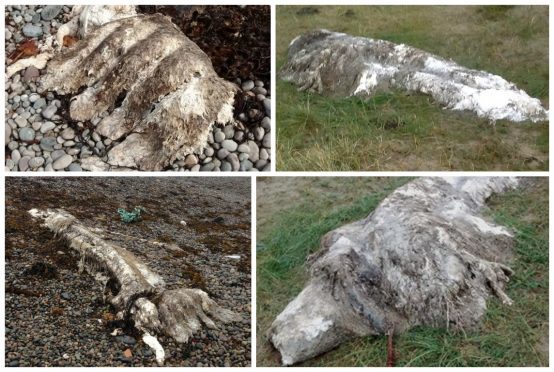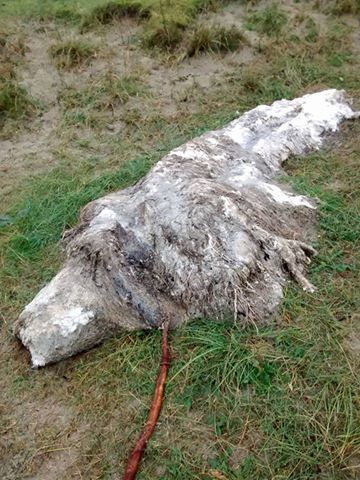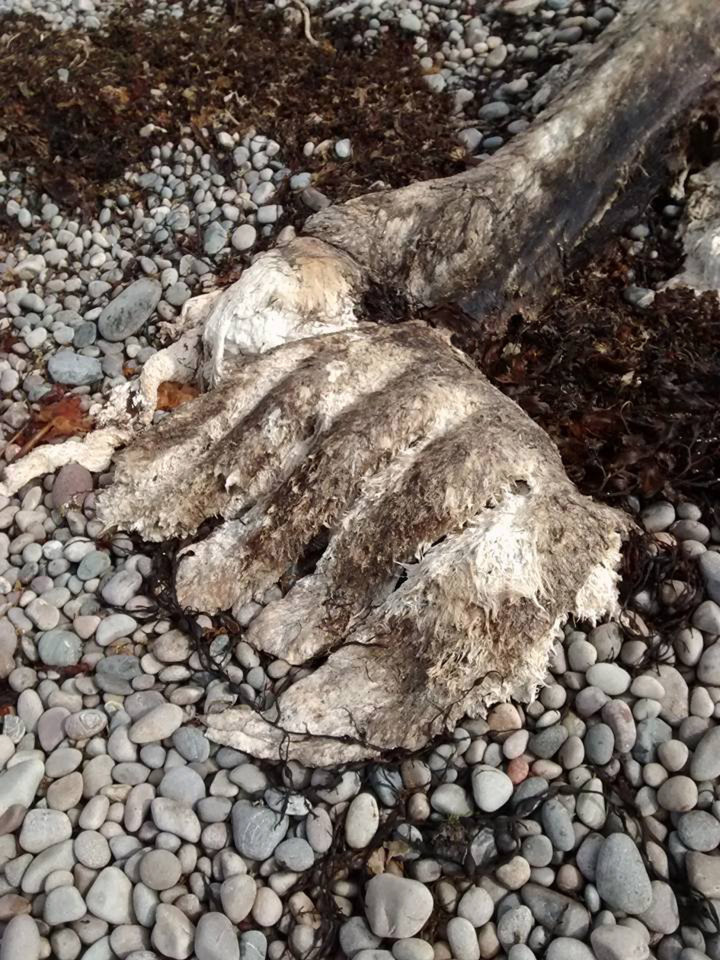Scottish islanders have been left baffled after the decomposed remains of three mystery creatures washed up on a beach.
Locals living on the west coast of Colonsay in the Inner Hebrides believe the remains belong to three polar bears.
The remains appeared at different points along the coast and the large size of the carcasses along with the lack of any clear definition in their structure, has led to a number of theories about their origin.
The beaches are around 1,400 miles from the nearest polar bear habitats in the freezing Arctic but some claim the discovery could be a symptom of global warming.
Instances of polar bears drifting on ice floes have been recorded in recent years and some islanders are convinced one has washed up on their shores,
Colonsay islander Kevin Byrne told the Daily Record: “If the ice cap is melting, the Arctic will become an open ocean so there will be a change in currents.
“If it melts, one might imagine that water from that open area will flow south, towards the equator, and that would explain the bears.”
The discovery was shared with local people on Saturday via the Friends of Colonsay Facebook page.
The admin for the page wrote: “Many Friends will remember the mystery remains that came ashore here.
“They seemed to be covered in hair, had hooves, smelt of blubber. They were examined by doctors and veterinarians, a rumour started that they were horses.”
The Royal Zoological Society of Scotland, the body that runs Edinburgh Zoo, said it was “highly unlikely” a dead polar bear would drift so far down from the Arctic Circle.
A spokeswoman said: “It’s vaguely possible it’s a walrus.
“It would help of course if its skull was still there, but the only way to know for certain would be to do a DNA test.”


